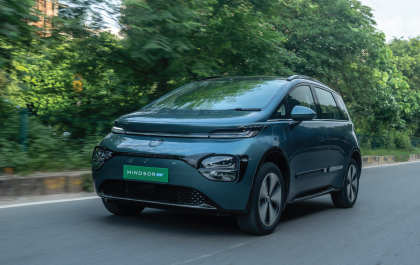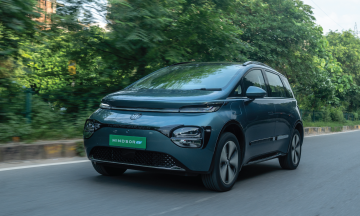By Abak Hussain
If we sat down to think too closely about the improbabilities of our continued existence, all the things that make our species possible and all the things that could end it, I suspect our anxieties would never let us get any sleep.
In fact, many already do report climate anxieties and cosmic events robbing them of their sleep, and perhaps they are onto something. And perhaps delusion really is the only solution – optimism being the opiate that sweetly lulls us to sleep, trapped in a hamster wheel of the day-to-day, pursuing promotions or short-term economic gain for that tiny hit of dopamine that keeps us going until our next fix.
Thinking about the truly big things is something a bit too much for the fragile human mind. And yet it is unavoidable and fundamentally human. Children, without even being taught, often ask the big questions about our planet and our place in the solar system and beyond … until they are taught not to worry their little heads and focus on the next exam, graduate well, and get a job that pays well. A job at a prestigious, global tech firm will make your family proud – think Google or Amazon, and climbing that ladder while steadily accumulating social prestige points becomes the name of the game, replacing that ancient concern about the health of our planet.

Louis Maniquet
I think at this juncture, it is fair to say we have failed to give our home the right amount of care. Here we were, on this Goldilocks planet, gazing out at the stars and wondering our place within it all. We lived with a lot of ignorance for a long time, inventing stories that explained the unpredictable forces of nature but also respecting the land that sustains us.
Science and technology gave us an even clearer picture of things. Look at Venus: so hot, so dry, the air pressure so thick that if you send a spacecraft there the whole thing would melt right after landing. Look at Mars: almost no atmosphere, no oxygen, and no warmth, the place is close enough to Earth to be the perfect venue for projecting our science fiction fantasies, but in reality, quite uninhabitable. There is a good reason why, 55 years after the moon landing, there has not been a single successful manned mission to any of our closest planets.

NASA
Once we leave the safety and comfort of our planet, where our thick atmosphere protects us from UV rays, meteors, solar winds, and regulates temperatures to keep everything just right like the perfect bowl of porridge, all bets are off, because in space no one can hear you scream and that chilling message is felt by even the most intrepid astronaut: You don’t belong here.
Bad to worse
Don’t get me wrong: I am not against space exploration. In fact, as an incorrigible space nerd, I quite like thinking about how far off into the frontier we can one day go, where we could maybe even build permanent bases. Maybe one day in the distant future, this pale blue dot will seem only like a crib where we started but were always destined to leave. But the trouble starts when the desire for progress and the hunger for more and more industry and tech endangers the very things that made life on Earth possible in the first place.
Why oh why would we so rampantly engage in activities and the production of chemicals and pollutants that hurt our ozone layer? If we stopped for a second think about just what this protective covering does for us in the face of the violent indifference of outer space, we would get down on our knees and worship it like an all-protecting deity. Ignorance is no longer an excuse either, because the science is there, and we know exactly what causes this damage.
Now – it must be said here that ozone damage, which makes us more vulnerable to getting deep fried in radiation, and the adverse effects of greenhouse gases which lead to global warming, are for the most part two separate, independent effects. Sometimes they are conflated in the press for general alarmism, so the reader must be careful and educate themselves on the science. No doubt, the connections will become clearer later.
Refrigeration and air conditioning, for example, are disastrous for the ozone layer, and we have been needing a lot more of those lately! And the demand will only go up with each record-breaking summer … which leads us back to the culprit behind all this global warming, namely emissions. One thing is clear – the current trajectory of growth is doing damage on a global scale on not one, but multiple fronts.
Let’s be evil
For instance, the hottest (haha!) word of our era is AI, and the resources that this technology guzzles up makes it absolutely disastrous for the planet. In the first place, the benefits of AI are dubious – so far there has been very little tangible progress which AI has facilitated, and most of the focus has been on the inanities of chatGPT and AI-generated art. How many more times do I need social media to show me a friend’s face in the version of “what would you look like if you were pretty?” As for chatGPT and other similar tools cropping up, as a writer, the thought that a compiling algorithm could do what I do is kind of repellent to me.
But this has been a goldmine for opportunists and fakers, and what it all morphs into, only time will tell. But going back to the environmental impact: if the effects of AI investment do not send an existential chill down your spine, you are simply not playing close enough attention. It has been reported that Google’s greenhouse gas emissions have soared to alarming levels, because, simply put, AI needs a lot of active computers to work, for very little payoff.
In just the last five years, Google’s emission have risen by a staggering 48%. Imagine that. This is a company that has always talked big about clean energy and sustainability, that has pretended to have goals of bringing emissions down to zero, that has fooled a generation (my generation) of woke early-milllennials with the tagline “Don’t be evil.” Who knows, maybe the millennials who once idolized Google and found their dream jobs there got old, their spirits crushed, their idealism shifting to the day-to-day. Or maybe it was all an illusion to begin with.
Here comes the sun
But back to the awesome power of the sun. Just recently, the world experienced some erratic solar weather. It was responsible for some spectacular views across the world, but we often forget that had it not been for the Earth’s natural defense system, consequences for life could have been dire. There is a lot of discussion on how solar flares can hurt us, such as by disrupting the power grid, but really, if you think about it, that’s getting off lightly.
Isn’t it a miracle that a big ball of fire like the sun, which sustains our life, also from time to time sprinkles out these flares like a garden hose, affecting much of the solar system, but we are still safe? That here were are, snugly ensconced in our Goldilocks planet, acting like all is well, taking our survival for granted?
Why do we play with fire? Why do we let Bezos act out his Star Trek fantasies of building habitats out in space while wreaking havoc on our current one? This Earth – to think, just how fragile it all is. And to think, the brightest and most driven minds on the planet – say, the indefatigable employees at the likes of Google and Amazon – are working day and night, not to preserve it, protect, and respect it, but to take it all for granted and push it to the brink.
Abak Hussain is Contributing Editor at MW Bangladesh.
Abak Hussain
- Abak Hussain#molongui-disabled-link
- Abak Hussain#molongui-disabled-link
- Abak Hussain#molongui-disabled-link
- Abak Hussain#molongui-disabled-link













